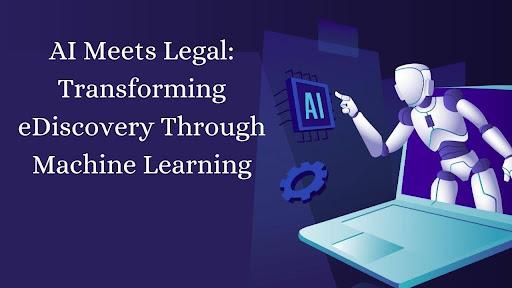AI Meets Legal: Transforming eDiscovery Through Machine Learning
In the rapidly evolving landscape of legal technology, the integration of Artificial Intelligence (AI) and Machine Learning (ML) is reshaping eDiscovery processes, addressing challenges posed by the digital age. Padmapriya Nagineni, an expert in AI-driven legal innovations, highlights how these advancements enhance efficiency and accuracy, ultimately revolutionizing how legal professionals navigate data analysis and litigation.
The Evolution of eDiscovery
The exponential growth of digital data has made traditional eDiscovery methods manual document reviews unsustainable. Legal teams now contend with millions of documents, emails, and other digital records in litigation. This explosion in data volume, variety, and velocity has necessitated the adoption of AI tools to streamline processes, reduce costs, and improve outcomes.
AI technologies like predictive coding and NLP revolutionize eDiscovery by analyzing patterns, automating theme detection, and categorizing documents. Predictive coding cuts review time by 80%, achieving 95% accuracy, while NLP enhances efficiency by identifying key information and privileged data seamlessly.
Key Innovations in AI-Driven eDiscovery
Predictive Coding: Efficiency Redefined
Predictive coding, a transformative advancement in AI-powered eDiscovery, significantly reduces the time and costs associated with document review. By learning from human-reviewed “seed sets,” it predicts document relevance with remarkable accuracy. Processing up to 50,000 documents daily far surpassing the 50 per hour achievable by humans it enhances efficiency, streamlines workflows, and enables legal teams to manage vast datasets with greater speed and precision, revolutionizing traditional legal review processes.
NLP: Understanding Language at Scale
NLP technologies allow for deeper insights into unstructured data by identifying sentiment, context, and key concepts. For example, these algorithms can sift through thousands of emails to pinpoint relevant communications or flag potentially privileged information with 92% accuracy. This advancement minimizes the risk of errors while significantly accelerating review timelines.
Unsupervised Learning: Discovering Hidden Patterns
AI’s ability to uncover relationships and anomalies within datasets is another game-changer. Unsupervised learning models can map communication networks, detect fraud, and cluster similar documents. These capabilities streamline investigations, enabling legal teams to focus on critical issues more effectively.
Ethical Considerations in AI-Driven Legal Tech
As AI tools become indispensable in legal processes, ethical challenges such as transparency, bias mitigation, and data privacy have come to the forefront. Courts now require explainability for AI-driven decisions, prompting the development of “explainable AI” systems that offer insights into how models make determinations. Additionally, organizations are implementing diverse training datasets and robust oversight to reduce biases and maintain fairness in legal outcomes.
Data security is paramount in AI-driven eDiscovery, where sensitive legal information demands strict compliance with regulations like GDPR. Techniques such as federated learning, which avoids centralized data storage and advanced encryption effectively mitigate risks, enhance data protection, and safeguard the integrity of legal processes while ensuring regulatory compliance.
The Future of AI in Legal Data Processing
The horizon for AI in eDiscovery is bright, with innovations set to deepen its impact:
- Sophisticated Language Models: Next-generation models are expected to achieve near-human understanding of legal documents, reducing initial case assessment times by up to 70%.
- Blockchain Integration: Blockchain promises enhanced data integrity and streamlined chain-of-custody documentation, reducing disputes over data authenticity.
- Cross-Lingual Capabilities: As legal matters increasingly cross borders, AI-powered translation models will provide accurate, efficient solutions for multi-language document reviews.
- Industry-Specific AI Models: Custom AI systems trained on legal datasets are projected to improve the relevance and accuracy of eDiscovery results, transforming how cases are prepared and argued.
In conclusion, as Padmapriya Nagineni emphasizes, AI is revolutionizing eDiscovery by enabling legal teams to manage the complexity of digital data with unparalleled efficiency and accuracy. Its responsible implementation, grounded in ethical considerations, ensures the integrity of legal processes while paving the way for a more equitable and innovative future in the legal industry.


Comments are closed.